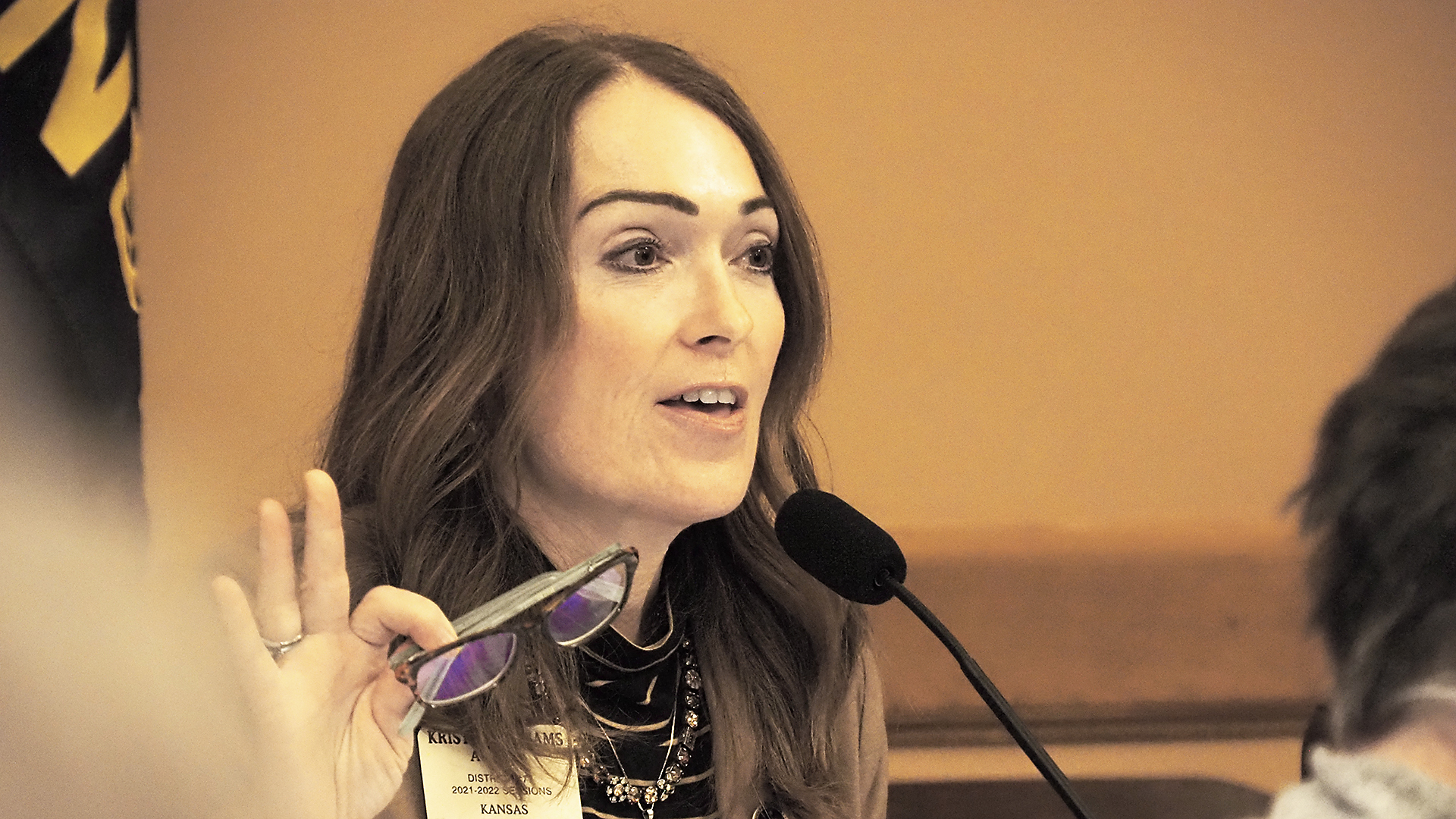
SALT LAKE CITY – Former Republican U.S. Senator Orrin Hatch, who spent over 40 years representing the state of Utah in the Senate, died at the age of 88. The Orrin G. Hatch Foundation announced that he passed away Saturday at 5:30 p.m. surrounded by his family. No specific cause of death was given.
Hatch’s Senate career spanned from 1977 to 2019, longer than any other Republican in the nation’s history.
The Senator was best known for his efforts to get the Americans with Disabilities Act and the Children’s Health Insurance Program passed in the Senate and signed into law. He was also known for his committed political philosophy as a fiscal moderate on Capitol Hill within the Republican Party.
The Salt Lake City Tribune noted Sunday reporting on his career:
“In his early years in the Senate, Hatch was seen as a right-wing brawler, fighting for a balanced-budget amendment and laws undermining labor unions. He didn’t earn his deal-making reputation until he struck up a friendship with a liberal lion, late Massachusetts Democratic Sen. Ted Kennedy. Known as the “Odd Couple” in Washington, they teamed to pass the Children’s Health Insurance Program, the first research bill on AIDS and the Americans with Disability Act.”
During a speech on June 17, 1987, then President Ronald Reagan wryly noted in reference to Hatch and the Federal budget; “Let me just say that if every Member of the Senate were like Orrin Hatch, we’d be arguing over how to deal with a Federal surplus. And that’s why I like to think of Orrin as “Mr. Balanced Budget.”
His stance on hot button political/cultural issues was extremely conservative. Hatch was strongly opposed to abortion and was the author of the Hatch Amendment to the Constitution that failed to get Senate approval, which stated that there is no constitutional right to abortion and empowered the states to restrict abortion as they saw fit.
On immigration, the Senator embraced tougher enforcement immigration policy including expanding the number of Border Patrol officers at the Southern Border with Mexico. But he partnered with Illinois Democratic Senator Dick Durbin introducing the DREAM Act, which would provide a pathway to citizenship for the children of undocumented immigrants, who were children when their parents came to the United States.
Thus far the legislation has languished even after being reintroduced several times, but has not been approved by majorities in either house of Congress.
On LGBTQ+ rights Hatch initially took the Republican Party and conservative stance on the issues of equality. At the start of his political rise in Republican politics as a newly elected U.S. Senator in 1977, he told students from the University of Utah; “I wouldn’t want to see homosexuals teaching school anymore than I’d want to see members of the American Nazi Party teaching school.
Nine years later in 1996 he supported the Defense of Marriage Act.
Hatch also voted against the Matthew Shepard and James Byrd Jr. Hate Crimes Prevention Act in 2009, which expanded federal hate crime laws to include crimes committed against people based on their gender identity and sexual orientation. During Senate debate over the legislation, he questioned whether it was necessary, suggesting that anti-gay violence was not “a major problem.”
As the country moved towards wider acceptance of same-sex marriage, in 2012, the Senator voted to confirm U.S. District Court Judge Robert Shelby to the Federal Bench in Utah, who then President Barack Obama had nominated.
Judge Shelby on December 20, 2013, struck down Amendment 3 of Utah’s State Constitution, which defined marriage as a union solely between a man and a woman, opening the way for same-sex marriage in the state.
Shelby ruled that Amendment 3 was in violation of the U.S. Constitution’s 14th Amendment, which guarantees due process and equal protection. As a result Shelby’s ruling set off a series of other district court decisions that overturned bans in several other states.
His ruling was affirmed by the Tenth Circuit Court of Appeals on June 25, 2014. On October 6, 2014, the U.S. Supreme Court declined the review the Tenth Circuit’s ruling, legalizing same-sex marriage in Utah.
The ruling by Shelby and the effect on the effort to legalize same-sex marriage was noted by Hatch on a Salt Lake City Utah radio show in 2014 saying that, even though he may not like it, legal gay marriage is inevitable:
“Lets face it. Anybody that does not believe that gay marriage is going to be the law of the land just hasn’t been observing what’s going on,” he said on KSL NewsRadio’s “Doug Wright Show.”
“The trend right now in the courts is to permit gay marriage and anybody who doesn’t admit that just isn’t living in the real world.”
Prior to his statements to KSL, in April of 2013, Hatch stated publicly that he viewed same-sex marriage as “undermining the very basis of marital law”, but declined to support a Federal Marriage Amendment and endorsed same-sex couples’ right to form a civil union, stating that the law should “give gay people the same rights as married people”
Between January 2012 and February 2014, plaintiffs in Michigan, Ohio, Kentucky, and Tennessee filed federal district court cases that culminated in Obergefell v. Hodges.
After all district courts ruled for the plaintiffs, the rulings were appealed to the Sixth Circuit. In November 2014, following a series of appeals court rulings that year from the Fourth, Seventh, Ninth, and Tenth Circuits that state-level bans on same-sex marriage were unconstitutional, the Sixth Circuit ruled that it was bound by Baker v. Nelson and found such bans to be constitutional. This created a split between circuits and led to a Supreme Court review.
On June 26, 2015, Obergefell overturned Baker and required all states to issue marriage licenses to same-sex couples and to recognize same-sex marriages validly performed in other jurisdictions.
Also in 2013 he was one of only 10 Republican senators who voted in favor of the Employment Non-Discrimination Act, legislation that prohibits discrimination in hiring and employment on the basis of sexual orientation/gender orientation for those identifying as gay, lesbian, bisexual or transgender. On November 7, 2013, the bill passed the Senate with bipartisan support by a vote of 64–32. President Obama supported the bill’s passage, but the House Rules Committee voted against it.
It appeared to political observers and others that as time moved on, the Senator was becoming more progressive in his viewpoints regarding LGBTQ+ people.
In July 2017, after President Donald Trump’s announcement that he ordered a ban on military service for transgender Americans the senator said; “I don’t think we should be discriminating against anyone, transgender people are people, and deserve the best we can do for them.”
In June of 2018, the year he retired from the Senate, Hatch gave a speech on the Senate floor expressing his support for the LGBTQ+ community and drawing attention to the high suicide rates among LGBTQ+ youth.
“No one should ever feel less because of their gender identity or sexual orientation,” Hatch said. “LGBT youth deserve our unwavering love and support. They deserve our validation and the assurance that not only is there a place for them in this society, but that it is far better off because of them. These young people need us—and we desperately need them.”
********************
Statement by President Joe Biden on the Passing of Former Senator Orrin Hatch
Jill and I and the entire Biden family are saddened to learn of the passing of Orrin Hatch, the longest-serving Senator in Utah’s history, and the longest-serving Republican Senator in our nation’s history.
Orrin Hatch once shared in an interview that he had a soft side, and he had a tough side. To serve with Orrin, as I did for over three decades, was to see—and appreciate—both.
He was the fighter who carried with him the memory of his humble upbringing near Pittsburgh, who never humored a bully, or shied from a challenge. The young man who, upon receiving his degree from Brigham Young University, was the first in his family to graduate college; the young lawyer who built a successful law practice; and the Senator who sprinted from meeting to meeting because there was so much to do—indeed, when Senator Hatch retired, he had sponsored or co-sponsored more legislation than any Senator at the time.
I saw that energetic, sharp-elbowed Orrin in the many battles we had over tax policy, the right of workers to join a union, and many others.
At the same time, Senator Hatch was also a man of deep faith; a gentle soul who wrote songs and poems, and shared them with friends, colleagues, and the world. This was the Orrin who looked out for the people who often didn’t have a voice in our laws and our country. I saw this in his efforts to pass the Americans with Disabilities Act and the Children’s Health Insurance Program.
When I first launched the Cancer Moonshot as Vice President, one of the first visits I made was to the Huntsman Cancer Institute in Salt Lake City, at Orrin’s request. We both saw speeding the pace of cancer research as an issue that transcended political divisions.
When I cast my 10,000th vote in the Senate, Orrin came to the Senate floor and we had a chance to speak. I said that the greatest perk one has as a Senator was access to people with serious minds, a serious sense of purpose, and who cared about something. That was Orrin.
He was, quite simply, an American original.
Jill and I send our deepest sympathies to Elaine, and all of the Hatch children, grandchildren, and great-grandchildren.
Former senator Orrin Hatch passes away at 88:
[embedded content]








